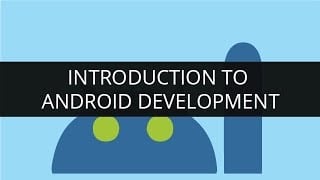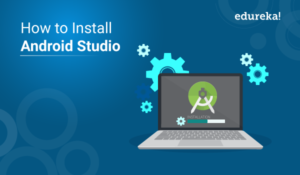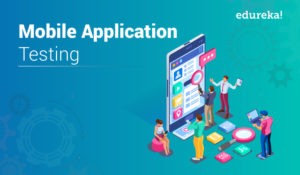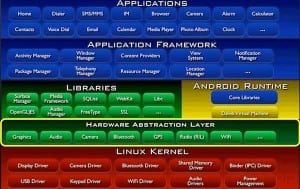These are Android interview questions that an IT fresher (with very little knowledge of Android), aiming to get into Android Development will face. An Android developer with some experience would be asked much advanced questions. One important thing that must be noted is that organizations generally hire freshers (with no Android skills), only if they come from premier technical institutes and have exceptional knowledge of Java. Otherwise, the freshers are considered only if they have some experience with Android. It is important to clearly grasp the basic concepts of Android and generally, an Android Certification training is recommended to understand each & every nuance of the technology. We had a detailed discussion with several Android professionals about their expectations from fresher engineers aiming to get into Android development, and this article is a relay of what they had to say about the most important Android Interview Questions:
5 most common Android Interview Questions
Question #1) What are the main components/building blocks of Android? Elaborate! (Alternatively, the interviewer can just name the components and ask you to explain.)
Question #2) Interviewees maybe asked to write a basic C program.
Question #3) A simple Java Programming Question is generally asked.
Question #4) The interviewees are generally asked about the updates in the latest version of Android. For instance, Which is the latest version of Android; explain the upgrades in it from the version before?
Question #5) One generic question that serves as an icebreaker in fresher Android interviews more often than not is “Why do you want to get into application development?” Of course, this is your chance to make a positive first impression. Prepare for this Android Interview question beforehand; but do not make it sound rehearsed. Also, be yourself; do not bother with unnecessary exaggerations in your response.
Check out the answers to these Android interview questions here!
What Android Interviewers expect from you:
From the list of the Android Interview questions above, it is quite evident that the interviewers don’t expect you to be proficient in Android programming beforehand (though it definitely would increase your chances of selection manifold). This is what you are expected to have:
1) Mobility Awareness:
You are expected to know about the different platforms out there in the mobility market.
2) Knowledge of Java fundamentals
Knowing Java is quite important for Android because in Android Application development a lot of Java based codes are used.
3) Some knowledge of Android:
A little about Android architecture, Kernels etc. (Once again, good knowledge of Android development and a certification for the same would be the biggest differentiator for any aspirant).Okay, so these are the kinds of technical Android Interview Questions that would come your way. Let’s talk personality now, shall we!
Desired Behavioral Traits
1) Keeping calm under pressure :

Stress tests are an important part of these interviews. Here is why:
Let us suppose you are selected for the job, and are working on an overseas Android development project.
You will have to deal with clients and co-workers you don’t personally know; they might have completely different work cultures. You would be expected to exercise a great deal of patience while dealing with them. This is why your forbearance will be tested in an interview.
The parameters you would be graded on might be:
a) Your immediate reaction to stressful situations. (Do you retain your calm or run scared?)
b) When faced with adversity, are you impulsive or thoughtful.
c) Are you intuitive and plan for such situations beforehand, or do you almost never foresee them? (For instance: if you are preparing for technical Android interview questions and stress interview beforehand, you are on the right track :)).
You might think it possible to acquire these qualities on the job. It’s true, but if the interviewer has to choose between two freshers with the same technical skills, then personality would play an important role.
2) Be confident, but don’t go overboard:
Another thing that the interviewers don’t appreciate is arrogance. Positive attitude is important, but don’t be an overconfident know-it-all. Be yourself, and don’t pretend to know things you don’t. It would hardly take a few minutes for a skilled interviewer to figure you out, so don’t bother with the exaggerations.
An Android professional who was recently a part of his organization’s interview panel for an ongoing recruitment drive, shared an incident with us:
“There was this one interviewee who had aced his aptitude test, and had fared well at the technical test too. He was so far the best of the bunch. We all had our minds almost completely made up about the guy. He had the knowledge, the skills and the attitude. But, one move on his part ruined it for him.
He was insistent on having worked on Android platform in the past. Fair enough! But, when cross-questioned he did not have enough knowledge to support his claims (which by the way, were pretty bold). It was an excusable mistake, but what turned it around completely was the way he handled the situation that followed.
His (over)confidence provoked the panel, and what was meant to be a friendly interaction turned into a fierce stress interview. He, of course could not handle it very well. The poor guy was obviously shaken up by the turn of events, so had his defenses up. However, he would have come across as arrogant in a real-world situation (handling a client).
He of course, did not get the position, even though he had the required skills.”
This is a great example of how overconfidence and improper stress handling can mess it up, even when you have the required skills.

Knowledge of English language is of course not the foremost thing looked at, but is important nonetheless.
Now you have an idea of the kind of personality parameters you would be graded on, in addition to the most common technical Android interview questions.
Additional interview questions:
Q1. Briefly explain Android Architecture.
Click here to learn about Android Architecture.
Q2. Is it true that android applications can only be programmed in Java?
No. You can write your code in C or C++ using the NDK development tools.
Q3. Explain different phases of Activity Life Cycle.
For better explanation about Activity Life Cycle join our famous Demo Class on Android.
Q4. Which database is used for Android?
- We use SQLite database in Android.
- Some points about SQLite:
- Open Source Database
- SQLite is available on every Android device
- It supports standard relational database features like
- SQL syntax
- transactions
- SQL statements
- Very light weight database
- Requires very little memory
- Approx. 250KB
- SQLite Database is automatically managed by Android Platform
Q5. What is ViewGroup?
A ViewGroup is a special view that can contain other views. Ex – LinearLayout, RelativeLayout etc. For more details about layouts click here.
Q6. How do you handle multiple resolution screens in android?
The following five properties help you to achieve multiple resolution screens in android:
- Screen size – Screen sizes are divided into four generalized sizes: small, normal, large, and extra-large.
- Screen density – Screen densities are also divided into four generalized densities: low, medium, high, and extra-high.
- Orientation – When user rotates the device the orientation of the device also gets changed.
- Resolution – The total number of physical pixels on a screen.
- Density – independent pixel (dp) – Provides you a density-independent way to define your layouts.
Q7. What is the importance of declaring permissions in android application development?
The limitation is imposed to protect critical data and code that could be misused to distort or damage the user experience. If an application needs access to a feature protected by a permission, it must declare that it requires that permission with a <uses-permission> element in the manifest. Then, when the application is installed on the device, the user determines whether or not to grant the requested permission by checking the authorities that signed the application’s certificates and, in some cases, asking the user. – reference Android Developers.
Q8. If I have all the drawable folders like xhdpi, hdpi, mdpi and ldpi and I am running my application on xhdpi devices,the images will be picked up from which folder.(I have not placed any image in xhdpi).
The system will first look for the image in drawable-xhdpi/ folder. If no matching resource is found then it will pick the image from the default folder i.e. drawable/ folder
Q9. Which is the latest version of Android? What upgrades does it have over the previous version?
The latest version is Android Lollipop, Kitkat is its predecessor. The upgrade was aimed at improving the User Interface functionality and performance.
Knowledge of the different versions of Android would help you answer such questions. You have already read about the Evolution of Android in one of our previous Android for beginners posts. Stay tuned for more details on that.
Q10. What type of listener is used to get the ratings from the RatingBar Widgets?
onRatingBarChangeListener() is used. Click to get more details about RatingBar and SeekBar.
Code based Questions:
Q1. How will you pass data to other activities? Write code?
Intent intent = new Intent(CurrentActivity.this, OtherActivity.class); intent.putExtras(“key”, “value”); startActivity(intent);
Q2. Write code for a Toast that will display the message “I am a Toast”?
Toast.makeText(getApplicationContext(), “I am a Toast”,
Toast.LENGTH_LONG).show();
Q3. Write a code snippet to generate a Button dynamically.
@Override
protected void onCreate(Bundle savedInstanceState) {
super.onCreate(savedInstanceState);
Button button = new Button(this);
button.setText("Button");
setContentView(button);
});
Happy Learning!
Got a question for us? Please mention it in the comments section and we will get back to you.
Related Posts:
Get started with Android Training
Top 5 Android Interview Questions for freshers
Android Tutorials for Beginners: Activity component






































> Interviewees maybe asked to write a basic C program
Why? If they are being interviewed for Android, why C, of all languages?
Hi Konrad, C is the basic Programming Language which helps us in understanding the basic concepts of any programming language. E.g: Concept will be same for all the programming languages but it may differ syntactically. We have native libraries in java defined using C Programming language.
Sure, but NDK development – where you write libraries in C or C++ – is a separate field within Android programming, and a rather niche one at that. For typical stuff, which is writing “regular” apps, you don’t need to bother with it and most programmers only ever use Java. I’m a professional Android programmer and I have never written a line in C, whether at job interview or otherwise.
Hi Konrad, your question is not clear to us. Please be more specific so that we can reply to your query.
Great post.
what is Activity Life cycle ???
how many adapters are in android and explain it??
what are the components of android??
explain android architecture??
how many ways we can store data inside android??
what is content provider ??
what is the use of broadcast reciever give the real example??
what is Intent??
android Google map like how can u create a key and how can u get the location??
and so many question are there …..
IT WAS HELPFULL 2 ME.
its ok.pls keep the experience questions.that, s very useful for everyone.
didn't like it. I expected questions more related about foundations of android.
super
Not Bad
good
its great thing for fresher and its helps to face interview and get the job